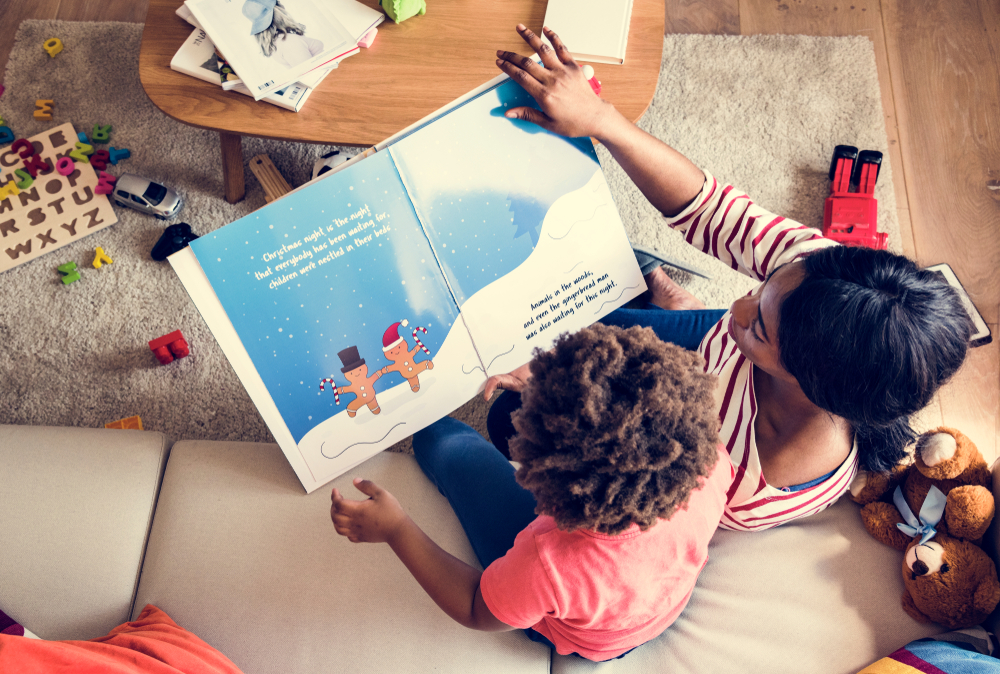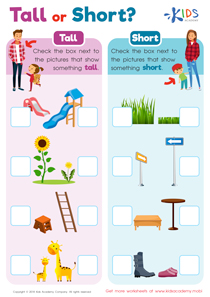Comparing quantities Preschool Math Worksheets
4 filtered results
-
From - To
Discover our engaging Comparing Quantities Preschool Math Worksheets, designed to make early learning fun and interactive! Perfect for young learners, these worksheets help children develop essential math skills by comparing different sets of objects, numbers, and sizes. Through vibrant visuals and easy-to-follow exercises, kids will practice identifying larger, smaller, and equal quantities while building foundational math concepts. The worksheets are suitable for home or classroom use, promoting independent learning and critical thinking. Make math enjoyable for preschoolers as they explore the world of comparison through playful activities that encourage learning through exploration. Get started today and watch your little ones thrive in math!
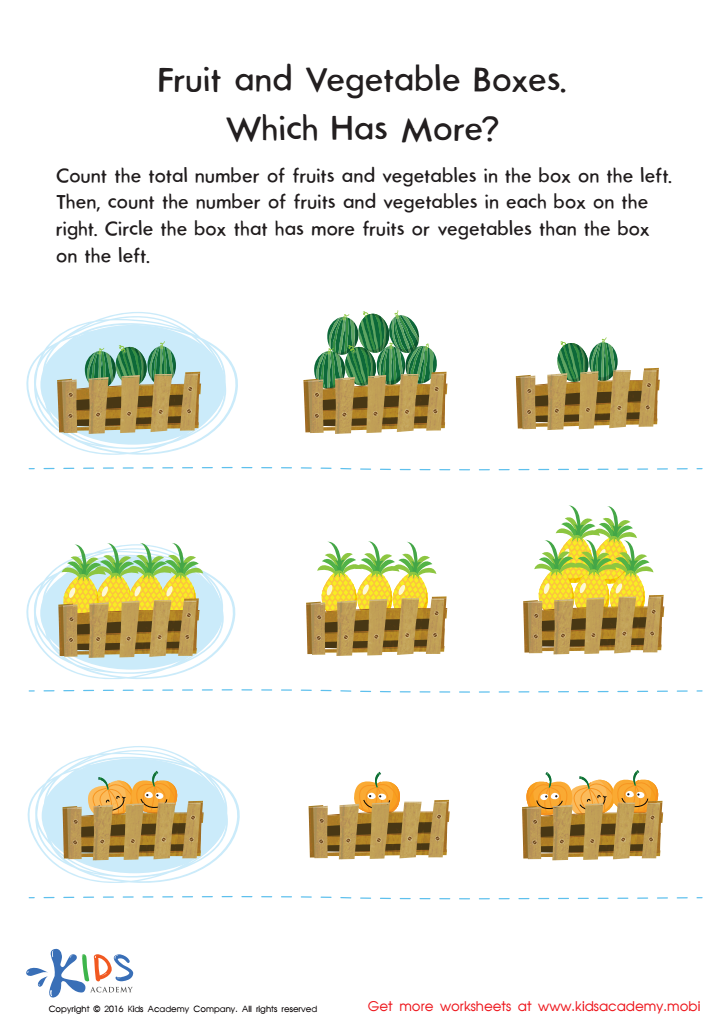

Which Has More? Size Worksheet
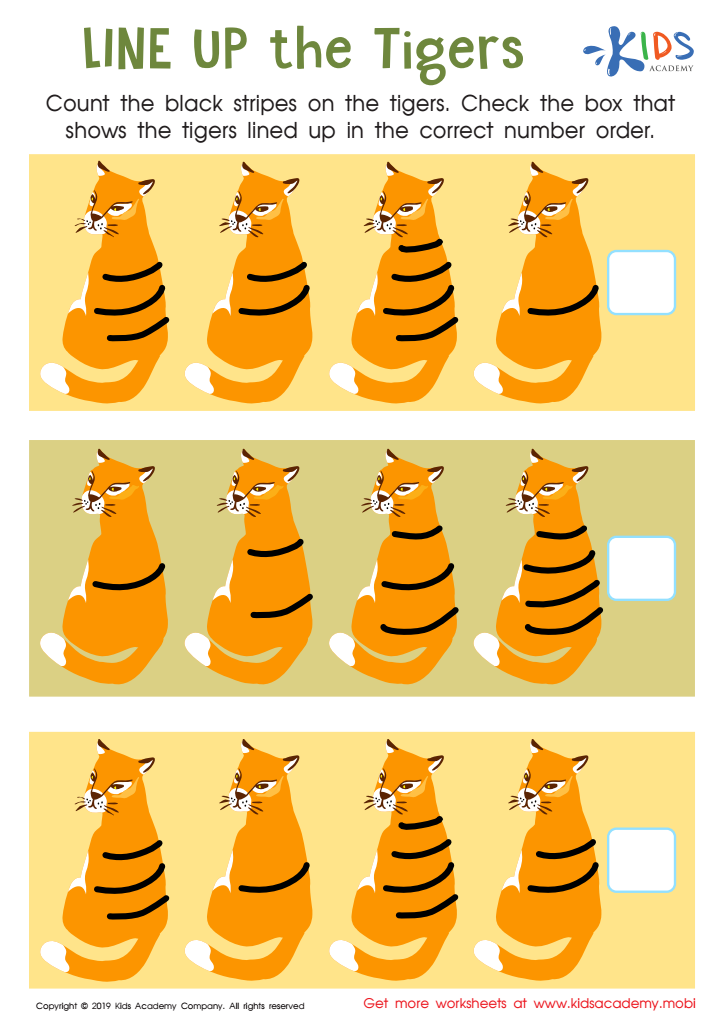

Line up the Tigers Worksheet
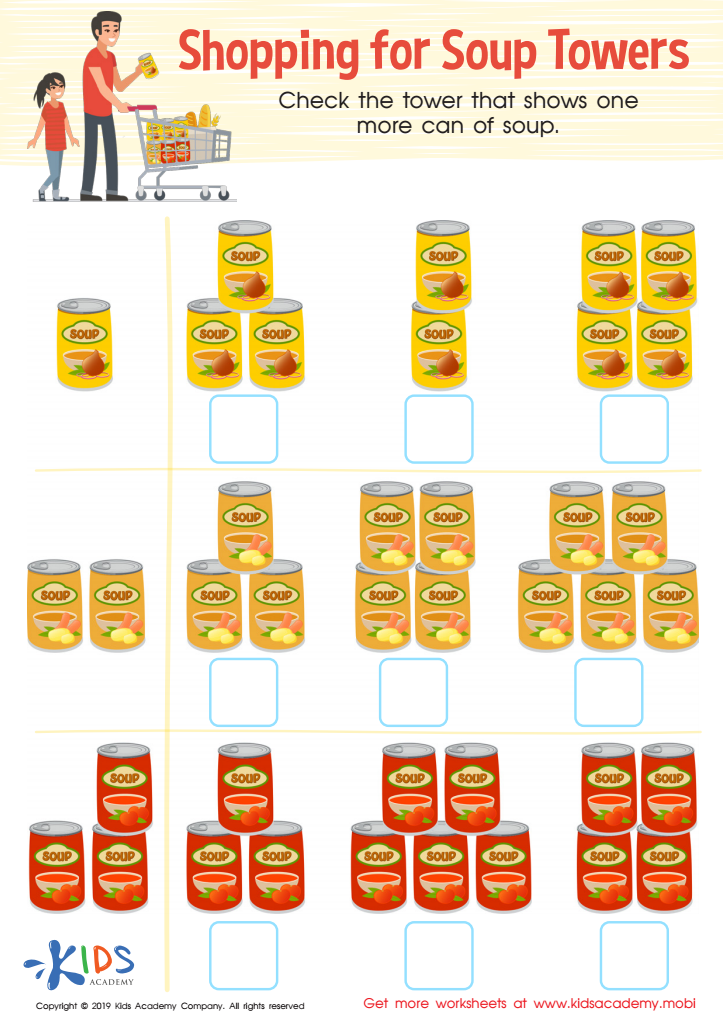

Soup Towers Worksheet
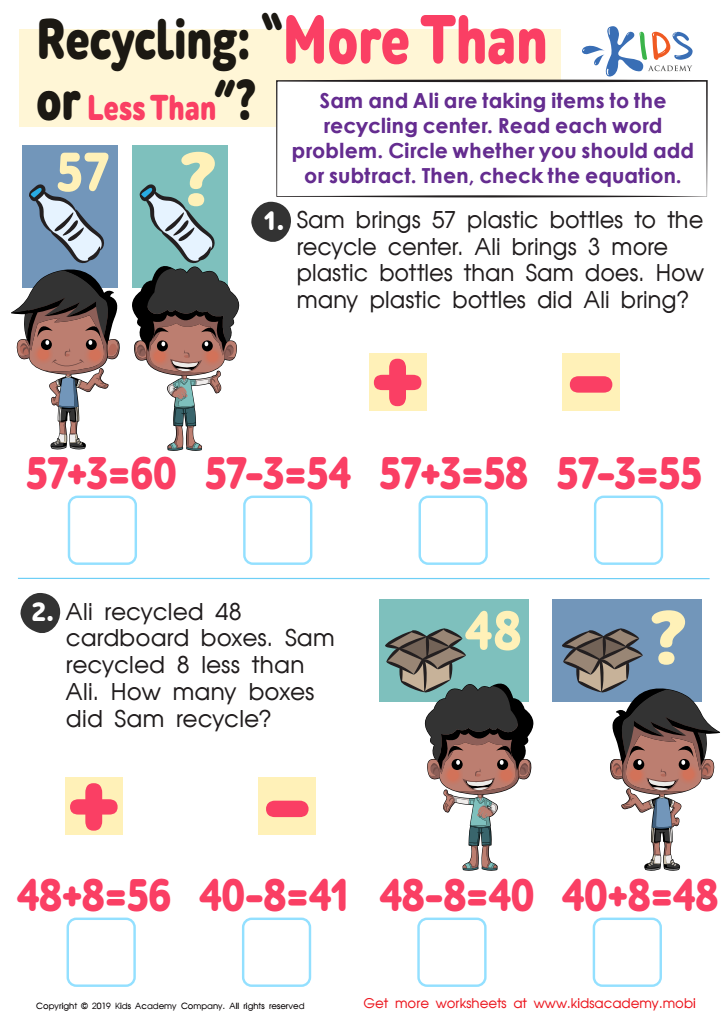

Recycling - More or Less Worksheet
Comparing quantities is a fundamental aspect of early mathematics education, and it's crucial for parents and teachers to recognize its importance. At the preschool level, children are naturally curious about their environment, and engaging them in activities that involve comparing quantities lays the foundation for critical mathematical skills.
Firstly, comparing quantities develops foundational skills in addition, subtraction, and number sense. By distinguishing between "more," "less," and "equal," children begin to understand the concepts of quantity and value, which are building blocks for future math learning.
Moreover, these activities foster important cognitive skills such as analytical thinking and problem-solving. When children compare quantities, they learn to assess situations, make judgments, and draw conclusions, skills that are necessary not only in math but in everyday life.
Additionally, comparing quantities enhances language development. As children articulate their reasoning—saying whether one group of objects is larger or smaller than another—they build vocabulary and communication skills.
By prioritizing comparing quantities in early education, parents and teachers set the stage for children's emotional and cognitive development, equipping them with essential tools for academic success and everyday interactions. Emphasizing this playful, yet educational approach can make learning both effective and enjoyable.
 Assign to My Students
Assign to My Students





